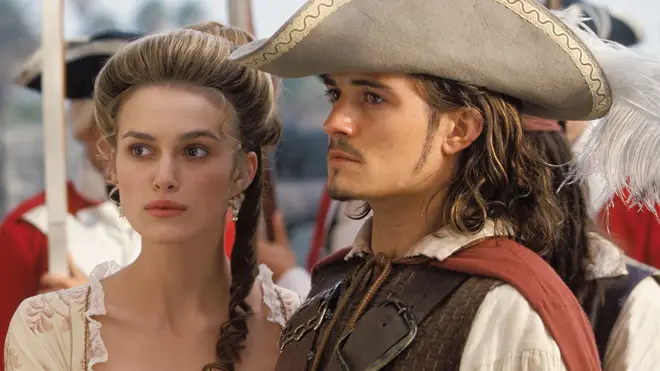On Air Now
Calm Classics with Ritula Shah 10pm - 1am
8 August 2023, 17:42 | Updated: 8 August 2023, 18:13

Watch the trailer for Pirates Of The Caribbean - On Stranger Tides
The music to the Pirates of the Caribbean film series is some of the best-loved movie music of all time. But who wrote those toe-tapping themes, and what’s the name of the famous song?
Arguably some of the greatest work to have emerged from its composers’ studios, the music to Pirates of the Caribbean has cemented its position as one of the greatest film soundtracks of all time.
A firm favourite in the Classic FM Movie Music Hall of Fame, the music is packed to the brim with epic themes that tell tall tales of barbaric buccaneers, swashbuckling shipmates and menacing marauders.
But as we mark 20 years since the release of the first Pirates of the Caribbean film in the UK, was it Hans Zimmer or Klaus Badelt that wrote the music, and what’s the name of that famous theme?
Take a pew, and we’ll tell you everything you need to know. Avast, ye!
Read more: Organist plays epic ‘Davy Jones’ from Pirates of the Caribbean in bone-chilling cathedral acoustic

Organist plays Davy Jones' Theme from Pirates of the Caribbean on Vienna's main cathedral organ
Across the five films in the Pirates of the Caribbean franchise, three composers have contributed music: Klaus Badelt, Hans Zimmer, and Geoff Zanelli.
For the first film, The Curse of the Black Pearl, director Gore Verbinski had originally enlisted the musical genius of Alan Silvestri, after working together on Mouse Hunt (1997) and The Mexican (2001). However, Silvestri and producer Jerry Bruckheimer didn’t see eye to eye, and the composer left the project before recording any part of the score.
On an urgent search for a replacement composer, Verbinski and Bruckheimer asked Hans Zimmer for a score, but he declined as he was busy writing the music to The Last Samurai.
Zimmer told Soundtrack.Net in 2006: “I absolutely promised both Tom Cruise and Ed Zwick that I wasn’t going to moonlight on anything else, and when I made the promise, I really, really believed it!
“But then Gore [Verbinski] got into a little bit of trouble and I said to him, ‘I can’t score this movie, there’s no way I can, but my friend Klaus [Badelt] probably can.’”
Read more: Hans Zimmer didn’t want to score ‘The Lion King’, but his 6-year-old daughter changed his mind

Work got swiftly underway, but Zimmer couldn’t quite help himself from contributing a few of his ideas. Between Zimmer and Badelt, the main themes were pieced together, and a team of composers was also enlisted to help orchestrate and provide additional scoring due to the tight timeline on the project.
Ultimately, Klaus Badelt was credited as the composer for the film’s soundtrack, Hans Zimmer as music producer, and ‘additional music’ credits were awarded to seven other composers, including Ramin Djawadi, Geoff Zanelli, and Steve Jablonsky.
Zimmer returned to score the second, third and fourth instalments of the franchise (Dead Man’s Chest, At World’s End, and On Stranger Tides, respectively), with additional help on the fourth film from Mexican guitar duo Rodrigo y Gabriela, choral music icon Eric Whitacre, and Eduardo Cruz – younger brother of Penélope Cruz, who played Angelica in the film.
The final film in the series, Dead Men Tell No Tales, was scored by Geoff Zanelli, who had worked on all four previous instalments, too.
Of all the music in the franchise, one theme has achieved renown above all others: ‘He’s a Pirate’.
The theme first appears scattered amongst the rest of the soundtrack in the first film, before being unveiled in all its glory as the credits begin to scroll.

He's a Pirate
Since its cinematic debut in 2003, the theme has been remixed by world-famous DJs including Tiësto, and is even used as theme music by American football team, the Tampa Bay Buccaneers.
An early version of the theme was first conjured up by Hans Zimmer, appearing in a synthesised demo written by Zimmer in just one night. However, whilst identifiable as the iconic theme, it sounds quite different from the final version that made it to cinema screens, which was ultimately credited to Badelt.